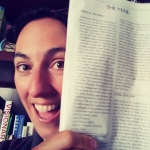Tech and Ag: Using EHRs to Better Identify and Train Agricultural Workers on Occupational Exposures

Fernando* had worked in agriculture on and off for six years. He drove out to the local apple orchards for four months out of the year, pruning, fertilizing, applying pesticides, and harvesting. Recently, he made a first-ever appointment at the local health center for a respiratory concern. Over the course of his appointment, the fact that he had regularly worked with corrosive and skin-irritating pesticides did not come up. The nature of his work was not a part of the clinical encounter nor documented in his chart, and the primary care provider missed the opportunity to link his work with his asthma-like symptoms -- and to talk with Fernando about some best practices for agricultural workers, like taking regular water breaks in the shade to avoid heat stress, washing hands, changing clothes, and removing shoes before entering the home to help prevent pesticide exposure to his children, and taking further action if he feels he was exposed to pesticides.
Luckily for many agricultural workers like Fernando, health centers across the US and Puerto Rico are adjusting their electronic health records (EHRs) and training staff to better identify agricultural workers in order to better serve them.
As part of Migrant Clinicians Network’s Workers and Health program, health centers are implementing new tactics to help their clinicians best address their environmental and occupational risks in a primary care setting. MCN is working with clinicians and health centers, not just to incorporate occupation into the EHR, but also to better equip clinicians with supporting material via the EHR in order to improve the recognition and management of environmental and work-related conditions. The EHR work, which MCN hopes to expand into new regions, has been piloted through a cooperative agreement with the Environmental Protection Agency’s Office of Pesticide Protection.
Laszlo Madaras, MD, MPH, Co-Chief Medical Officer for MCN, already uses the EHR in his clinical work as a hospitalist, including to prompt him to make sure he doesn’t combine two medications that do not go well together, or to ask for a code status from every patient being admitted. “The EHR is an important tool for clinicians to identify agricultural workers and then to prompt to ask about occupation exposure to pesticides, heat and sun, prolonged standing in one position, and more. That would help the continuous and efficient gathering of important information in the history and physical (H&P), which in turn may help get an accurate diagnosis right from the start,” said Dr. Madaras.
“There is broad interest to launch these efforts and Puerto Rico is leading the way,” notes MCN’s Alma Galván, MHC, Senior Program Manager of Environmental and Occupational Health. In addition to thousands of agricultural workers who are employed on farms, this agricultural island has a longstanding tradition of smallholder farmers, who, as owners of their small-scale enterprises, are often not identified as agricultural workers but engage in farm activities, adding another layer to the occupational identification picture, Galván says.
In 2016, the Puerto Rico Electronic Health Record User Team (PREUT), a group comprised of medical directors, IT managers, CFOs, and quality control managers from Puerto Rico health centers, began work to implement the Greenway Health EHR system across a number of Federally Qualified Health Centers. Jose Rodriguez, MD, Medical Director of Hospital General Castañer, a member of PREUT, and a close collaborator with MCN’s Workers and Health program is sharing his health center’s successful approach to identifying occupation and addressing work-related and environmental health conditions to better serve the patients and families who live or work on the local orange or coffee fincas.
“We've worked closely with Dr. Rodriguez for years. He's a true clinician champion,” explained Amy Liebman, MPA, Director of Environmental and Occupational Health for MCN. “He is now passing his extensive expertise on to others and helping them improve their recognition and management of pesticide exposures as well as other work or environmental related health conditions.”
The Puerto Rico Primary Care Association is also assisting as they see a broad need for this on this island. “Puerto Rico is the ideal place to make it happen, given the interest and the work that Dr. Rodriguez and PREUT is doing with the support of the island’s primary care association,” noted Galván.
In May, Dr. Rodriguez, representing MCN, gave a presentation to PREUT members about documenting agricultural worker patients, EOH screening questions, and educating agricultural workers, for new health centers to join the MCN initiative and pass along the training to their clinical and outreach staff. He spoke about how to document if a patient is an agricultural worker in the EHR, the need for agricultural worker education, and the services and EOH resources offered by MCN to educate providers and patients.
Dr. Rodriguez emphasized, “Incorporating all health centers into this MCN initiative is very important and will be very productive because some health centers already have programs for [mobile] workers and others do not, so not all are aware of how to serve this population.”
The next PREUT conference is planned for October 2017. Alexis Serrano, IT Manager of Corporación de Servicios Médicos, that has already adopted the EHR changes, noted: “In the upcoming meetings we will invite the centers with other [EHR] programs to participate because all are needed to report and record in the EHR the same way. This will allow us to include more health centers in the MCN initiative”.
* Fernando’s story is a fictional account based on stories from the field. Fernando is a fictional name.
- Log in to post comments

